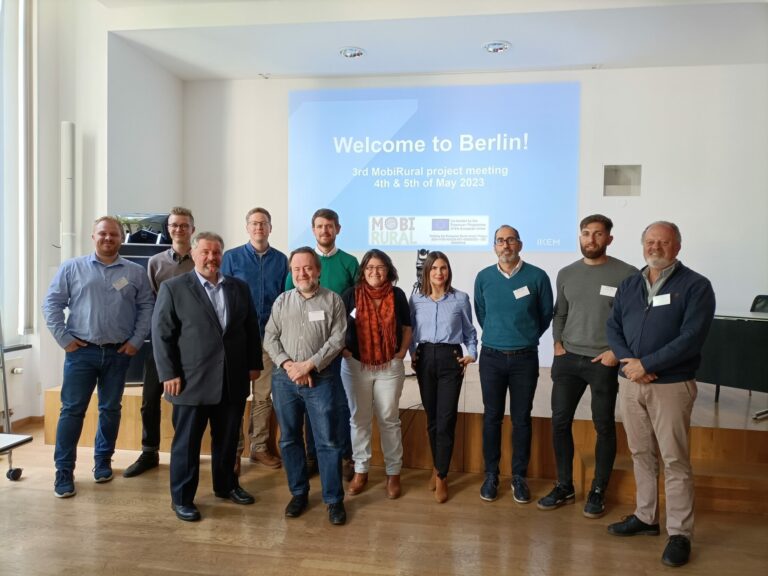At IKEM, on May 4, 2023, the MobiRural research consortium members convened to share their research outcomes and engage in discussions regarding the future course of the project. The European MobiRural initiative aims to identify sustainable solutions for rural mobility and create a practical learning platform to facilitate their successful implementation. In this way, the mobility transition in rural areas of Europe should be supported and mobility improved for all people.
The central task of IKEM in MobiRural is to develop training content for a digital learning platform. In addition, a European expert network for rural mobility is to be established, which will continue beyond the project duration for knowledge transfer and future cooperation. At the meeting in Berlin, the foundations for both work packages were laid together with the project partners. For example, the multipliers in the network should be able to access training materials that contain, among other things, information and practical tips on the legal framework for rural mobility offers. At the event, Simon Kaser, scientific researcher in the Mobility Department at IKEM, reported on the research work carried out to date in this area and presented the initial results to the project partners.
Maria López Gálvez, Head of Sustainable Mobility at the Extramadura Regional Government, outlined in her presentation the opportunities that technologies such as Transport-on-Demand and Big Data offer for greater efficiency in planning for rural mobility. Used in the right way, this could not only increase the number of local mobility options. Better accessibility to goods and services improves the quality of life for residents and has a positive impact on gender equality. With the TADex project, Maria López Gálvez presented a practical example in which scheduled services in the Extremadura region were successfully converted to on-demand buses.
Alexander Klinge(Neuland21) then continued to address the requirements for transportation modes and destinations in rural mobility in his presentation. He made it clear that these requirements are closely related to the respective size of the municipality, so specific solutions must also be found for rural areas. He also introduced the concept of Mobility as a Service (MaaS), which combines various on-demand mobility services in a central, user-friendly platform. In the Open Source Software for Rural On-Demand Transportation (OSLO) project, Neuland21 is currently developing a corresponding program for municipalities, he said.


